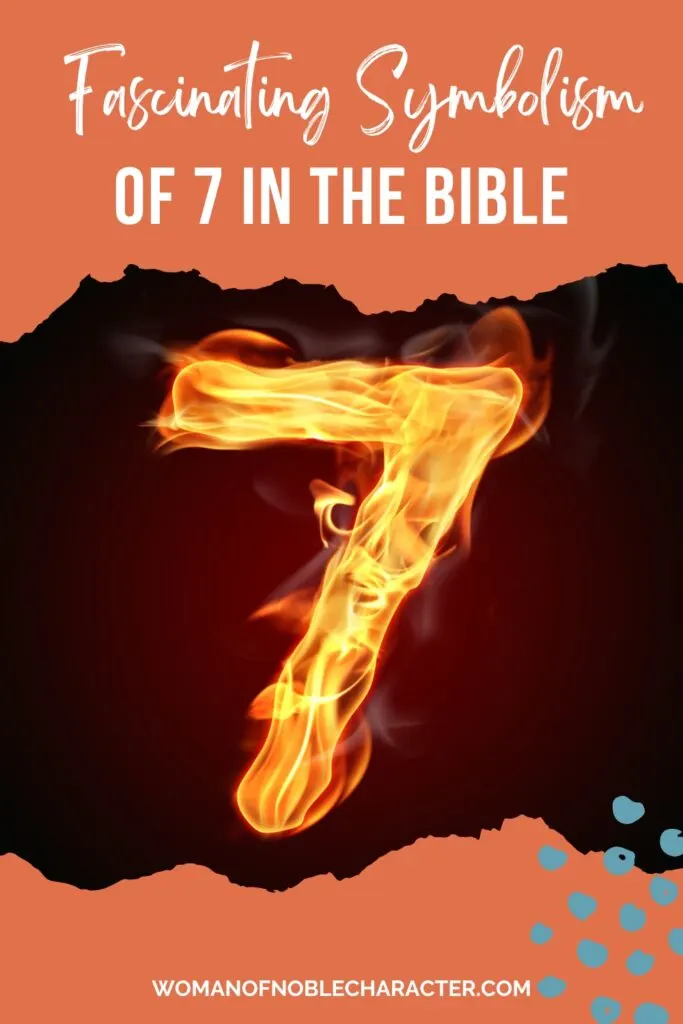This page/post may contain affiliate links. As an Amazon Associate, as well as an affiliate of other programs, this means if you purchase something using these links, I will receive a commission on qualifying purchases at no cost to you! For more detailed information, please visit our Affiliate Disclaimer page
The number 7 in the Bible has great significance and has been referred to as God’s number. It is often associated with completeness, or something being finished.
Numbers in the Bible are often symbolic of a deeper meaning. From the seven days of Creation to many “sevens” found in Revelation, this number connotes concepts such as completion and perfection, exoneration and healing, or fulfillment promises oaths.
Most commonly, the biblical meaning of the number is completion in God.
In this post, we’ll examine the meaning of 7 in the Bible as well as important scripture and Bible stories related to the significance of the number 7 in the Bible.
See below for a free printable with key Bible verses about the number 7 for deeper study.
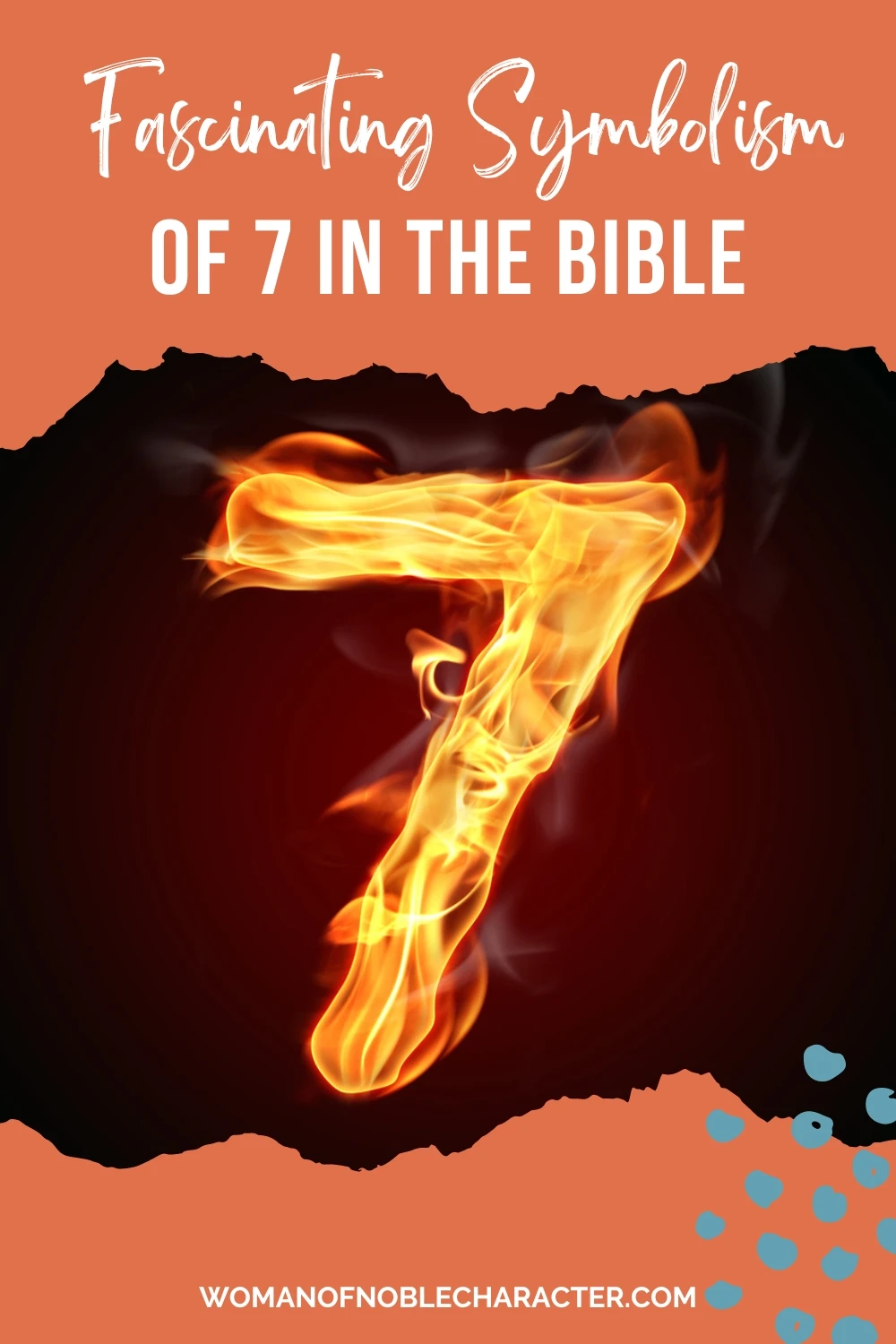
Interesting notes about 7 in the Bible:
- The spiritual number 7 is the foundation of God’s word, and in Revelation alone, it appears 54 times. Add to this how many times sevenfold (6) or seventh (119) are used, and you get a whopping 860 references!
- Seven is the number of completion and perfection (both physical and spiritual). Much of its significance comes from being connected directly to God’s creation.
- According to some Jewish traditions, and Israelite culture, the creation of Adam occurred on September 26, 3760 B.C. (or the first day of Tishri, which is the seventh month of the Hebrew calendar).
- The word ‘created’ is used 7 times to describe God’s creative work (Genesis 1:1, 21, 27 three times; 2:3; 2:4). There are 7 days in a week, and God’s Sabbath is on the 7th day.
- The Holy Bible was originally divided into 7 major divisions. They are 1) the Law; 2) the Prophets; 3) the Writings, or Psalms; 4) the Gospels and Acts; 5) the General Epistles; 6) the Epistles of Apostle Paul; and 7) the book of Revelation. The total number of originally inspired books was forty-nine, or 7 x 7, demonstrating the absolute perfection of the Word of God.
7 in the Bible: Completion and Perfection
In the Bible, seven often symbolizes completion or perfection. For example, in Genesis, God created heaven and Earth in six days; upon their completion, he rested on day 7.
And on the seventh day, God finished His work that he had done, and he rested on the seventh day from all his work that he had done. So God blessed the seventh day and made it holy, because on it God rested from all his work that he had done in creation.
Genesis 2:2-3 (ESV)
God created this cycle of work and rest as a testament to his commandment for humans. The commandments are that we should labor for six days and then complete the week by having a day of rest, which God set apart as the holy Sabbath.
Six days you shall labor, and do all your work, but the seventh day is a Sabbath to the Lord your God. On it you shall not do any work, you, or your son, or your daughter, your male servant, or your female servant, or your livestock, or the sojourner who is within your gates. For in six days the Lord made heaven and earth, the sea, and all that is in them, and rested on the seventh day. Therefore the Lord blessed the Sabbath day and made it holy.
Exodus 20:9-11 (ESV)
The number seven also signifies completion at the Crucifixion, when Jesus spoke seven statements in agony from the Cross. He did this upon completing His earthly duties; his last words were, “It is finished.”
In the New Testament, the seven statements Jesus spoke from the cross were:
- And Jesus said, “Father, forgive them, for they know not what they do.” – Luke 23:34 (ESV)
- And he said to him, “Truly, I say to you, today you will be with me in paradise.” – Luke 23:43 (ESV)
- … he said to his mother, “Woman, behold, your son!” Then he said to the disciple, “Behold, your mother!” … – John 19:26-27 (ESV)
- … “Eli, Eli, lema sabachthani?” that is, “My God, my God, why have you forsaken me?” – Matthew 27:46 (ESV)
- After this, Jesus, knowing that all was now finished, said (to fulfill the Scripture), “I thirst.” – John 19:28 (ESV)
- When Jesus had received the sour wine, he said, “It is finished,” and he bowed his head and gave up his spirit. – John 19:30 (ESV)
- Then Jesus, calling out with a loud voice, said, “Father, into your hands I commit my spirit!” And having said this he breathed his last. – Luke 23:46 (ESV)
When Jesus was asked what our prayer ought to be like (Matthew 6:9-13), Jesus responded with a grouping of seven petitions that became known as the Lord’s Prayer. These are not just any prayers; rather, they were uttered by Christ Himself when he formed them into this beautiful form of praise to God for us sinners. These few short verses is contained something every Christian can take advantage of–the right way to communicate respectfully with such an Almighty Creator.
Pray then like this:
“Our Father in heaven, hallowed be your name. Your kingdom come, your will be done on earth as it is in heaven.
Matthew 6:9-13 (ESV)
Give us this day our daily bread,
and forgive us our debts,
as we also have forgiven our debtors.
And lead us not into temptation,
but deliver us from evil.
Jesus Christ used seven metaphors to describe Himself as the path to salvation. He described Himself using a variety of ways, from being like water for thirst-quenching, bread for hunger satisfaction, shelter against storms in life, unleavened bread, and others.
These are the 7 metaphors Jesus used to describe Himself:
The Bread of Life:
Jesus said to them, “I am the bread of life; whoever comes to me shall not hunger, and whoever believes in me shall never thirst. – John 6:35 (ESV)
The Light of the World:
Again, Jesus spoke to them, saying, “I am the light of the world. Whoever follows me will not walk in darkness, but will have the light of life.” – John 8:12 (ESV)
The Door to Salvation:
I am the door. If anyone enters by me, he will be saved and will go in and out and find pasture. – John 10:9 (ESV)
The Good Shepherd:
I am the good shepherd. The good shepherd lays down his life for the sheep. – John 10:11 (ESV)
The Resurrection and the Life:
Jesus said to her, “I am the resurrection and the life. Whoever believes in me, though he die, yet shall he live, and everyone who lives and believes in me shall never die. Do you believe this?” – John 11:25-26 (ESV)
The Way, the Truth, and the Life:
Jesus said to him, “I am the way, and the truth, and the life. No one comes to the Father except through me. – John 14:6 (ESV)
The Vine:
I am the vine; you are the branches. Whoever abides in me and I in him, he it is that bears much fruit, for apart from me you can do nothing. – John 15:5 (ESV)
In addition, King David referenced the number seven in describing God’s perfect nature by writing that “the Lord’s words are flawless, like gold refined 7 times.” Likewise, when Isaiah described Christ coming to earth, he listed 7 traits of perfection.
The words of the Lord are pure words,
Psalm 12:6 (ESV)
like silver refined in a furnace on the ground,
purified seven times.
There shall come forth a shoot from the stump of Jesse,
Isaiah 11:1-2 (ESV)
and a branch from his roots shall bear fruit.
And the Spirit of the Lord shall rest upon him,
the Spirit of wisdom and understanding,
the Spirit of counsel and might,
the Spirit of knowledge and the fear of the Lord.
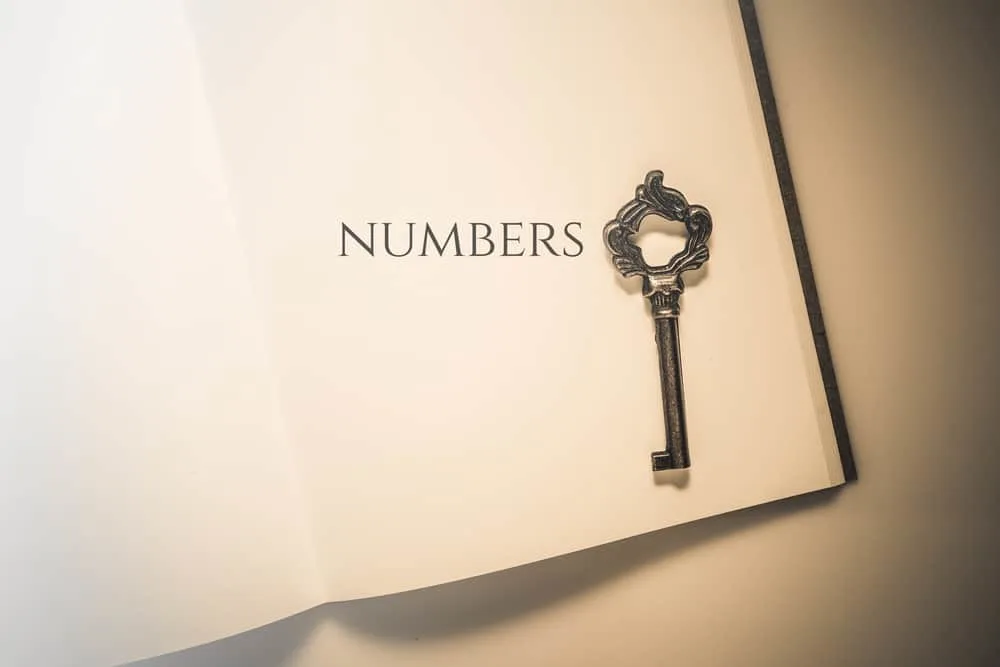
7 in the Bible – Fulfillment of Oaths and Promises
It is said that the Hebrew word for swearing an oath (shaba) and the Hebrew word for seven (sheba) both derive from a common ancient root in Semitic languages meaning satisfaction or fullness. (saba) In fact, one of our most famous swear words – “swear” itself- has its roots lying with this same concept.
In the Old Testament God made a covenant to His people never to destroy the earth again with floods. To commemorate this covenant, God created the rainbow, which is comprised of seven colors.
Later in the book of Genesis, we learn that Abraham swore an oath of ownership over a certain well of water. He then gave seven lambs as payment and named the site where he took this oath “Beersheba” which means “the Well of Seven.”
The Book of Joshua teaches us that seven is the number of promises, a holy number. In this example, God promised to bring down Jericho’s fortified walls if an army marched around it once a day for six days and then one more time on the seventh day with seven high priests blowing trumpets.
Joshua followed the Lord’s commands, and the walls of Jericho “came tumbling down,” just as the Lord had promised.
Seven is also the number of letters in Revelation. These seven messages are aimed at the churches to repent, and if they do and pledge themselves wholly to God, they will receive their reward in Christ.
Revelation often invokes the number seven in its discussion of God’s promise to save those whose names are written in the Book of Life and condemn those who aren’t.
The fulfillment of this from God is revealed by groups of seven: seven seals, seven trumpets sounded by seven angels, and seven bowls of God’s promised wrath carried by seven angels.
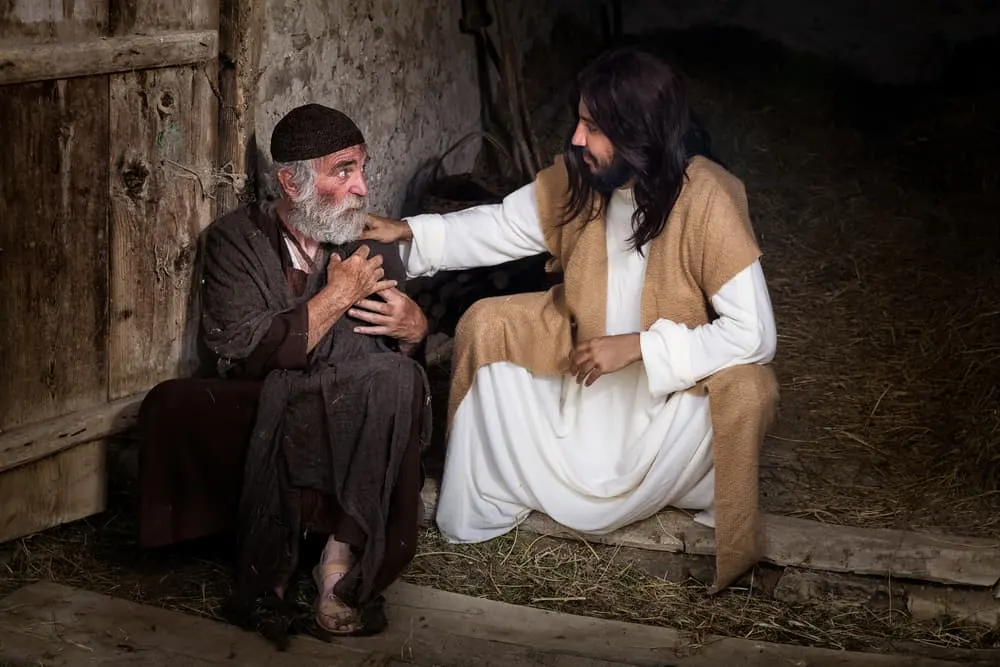
7 in the Bible: Exoneration and Healing
The number seven is also linked to both healing and exoneration. We learn in Deuteronomy that in every seventh year, the Israelites were to cancel all the debts they had made with each other and free their slaves.
“At the end of every seven years you shall grant a release. And this is the manner of the release: every creditor shall release what he has lent to his neighbor. He shall not exact it of his neighbor, his brother, because the Lord’s release has been proclaimed.
Deuteronomy 15:1-2
We see another example of 7 in the Bible, meaning exoneration, in Matthew 18:21-22. Here Jesus tells us to forgive each other seven times seventy times seven which doesn’t literally translate into 490 forgiveness. Still, it does mean that we should be forgiving the same person again and again without end.
While the prophet Elisa was in Syria, he encountered Naaman, who had been told by doctors that only death could heal him. Instead, he found himself healed simply by following Elisha’s instruction to bathe seven times in the Jordan River.
So Naaman came with his horses and chariots and stood at the door of Elisha’s house. And Elisha sent a messenger to him, saying, “Go and wash in the Jordan seven times, and your flesh shall be restored, and you shall be clean.”… So he went down and dipped himself seven times in the Jordan, according to the word of the man of God, and his flesh was restored like the flesh of a little child, and he was clean.
2 Kings 5:9-10, 14 (ESV)
In addition, Jesus performed seven miracles by healing seven people on the seventh day of the week (the Sabbath). Not only did Jesus heal them physically but also spiritually to help them find hope for life after death.
Here are the seven miracles performed by Jesus on the seventh day of the week:
A man with a deformed hand:
He went on from there and entered their synagogue. And a man was there with a withered hand. And they asked him, “Is it lawful to heal on the Sabbath?”—so that they might accuse him. He said to them, “Which one of you who has a sheep, if it falls into a pit on the Sabbath, will not take hold of it and lift it out? Of how much more value is a man than a sheep! So it is lawful to do good on the Sabbath.” Then he said to the man, “Stretch out your hand.” And the man stretched it out, and it was restored, healthy like the other.
Matthew 12:9-13 (ESV)
A man possessed by an unclean spirit:
And immediately, there was in their synagogue a man with an unclean spirit. And he cried out, “What have you to do with us, Jesus of Nazareth? Have you come to destroy us? I know who you are—the Holy One of God.” But Jesus rebuked him, saying, “Be silent, and come out of him!” And the unclean spirit, convulsing him and crying out with a loud voice, came out of him.
Mark 1:23-26 (ESV)
Peter’s mother-in-law with fever:
And immediately he left the synagogue and entered the house of Simon and Andrew, with James and John. Now Simon’s mother-in-law lay ill with a fever, and immediately they told him about her. And he came and took her by the hand and lifted her up, and the fever left her, and she began to serve them.
Mark 1:29-31 (ESV)
A Woman with a Disabling Spirit:
Now he was teaching in one of the synagogues on the Sabbath. And behold, there was a woman who had had a disabling spirit for eighteen years. She was bent over and could not fully straighten herself. When Jesus saw her, he called her over and said to her, “Woman, you are freed from your disability.” And he laid his hands on her, and immediately she was made straight, and she glorified God.
Luke 13:10-13 (ESV)
A man with “dropsy”:
One Sabbath, when he went to dine at the house of a ruler of the Pharisees, they were watching him carefully. And behold, there was a man before him who had dropsy. And Jesus responded to the lawyers and Pharisees, saying, “Is it lawful to heal on the Sabbath, or not?” But they remained silent. Then he took him and healed him and sent him away.
Luke 14:1-4 (ESV)
An invalid man by the pool of Bethesda:
One man was there who had been an invalid for thirty-eight years. When Jesus saw him lying there and knew that he had already been there a long time, he said to him, “Do you want to be healed?” The sick man answered him, “Sir, I have no one to put me into the pool when the water is stirred up, and while I am going another steps down before me.” Jesus said to him, “Get up, take up your bed, and walk.” And at once the man was healed, and he took up his bed and walked.
John 5:5-9 (ESV)
A man blind from birth:
As he passed by, he saw a man blind from birth. And his disciples asked him, “Rabbi, who sinned, this man or his parents, that he was born blind?” Jesus answered, “It was not that this man sinned, or his parents, but that the works of God might be displayed in him. We must work the works of him who sent me while it is day; night is coming, when no one can work. As long as I am in the world, I am the light of the world.” Having said these things, he spit on the ground and made mud with saliva. Then he anointed the man’s eyes with mud and said to him, “Go, wash in the pool of Siloam” (which means Sent). So he went and washed and came back seeing.
John 9:1-7 (ESV)
More Really Interesting Significances of 7 in the Bible in Genesis
- In Genesis 1, it becomes clear that time is an important theme. The first chapter of the Bible provides a foundation for all sacred rituals in Israel through its recurring themes and patterns.
- Genesis Chapter One reveals how God created both space and time; this idea resonates throughout ritualistic life as people mark seasons with holidays like Rosh Hashanah or Yom Kippur.
- There are many other ways the number seven is symbolic in Genesis: there are seven words in Genesis 1:1 and fourteen words in Genesis 1:2
- There are seven paragraphs in Genesis 1:1-2:3
- The concluding seventh paragraph in Genesis 2:1-3 begins with three lines which have seven words each.
- Each of the keywords in Genesis 1:1 is repeated by multiples of seven in Genesis 1:2-2:3.
“God” = 35x (7 x 5) “land” = 21x (7 x 3) “skies” = 21x (7 x 3)
Keywords repeated seven times:
“light” and “day” on day 2, “light” on day 4, and “living creature” (חיה) on days 5-6 “God saw that it was good” God speaks 10 times in Genesis 1:1-2:3.
- Seven times are divine creative commands to the creation itself: “let there be….” Three times are divine initiatives toward humanity: “let us make ‘adam…,” “be fruitful and multiply,” and “behold I have given to you….”
- Seven communicated a sense of “fullness” or “completeness” (שבע “seven” is spelled with the same consonants as the word שבע “complete/full”).
- 7 is a prime number
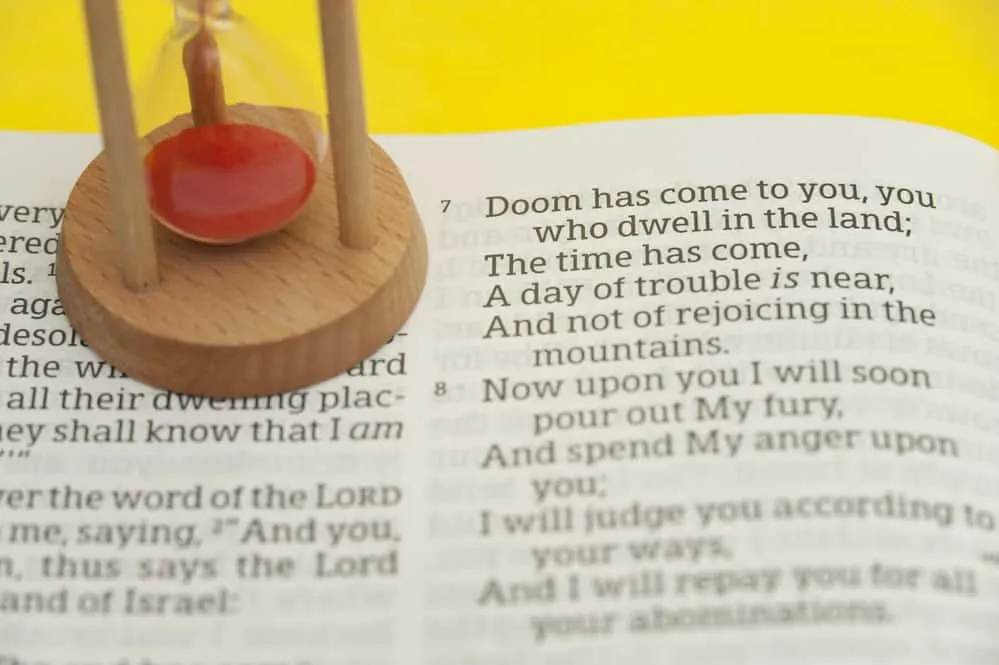
A Final Note on the Significance of 7 in the Bible
The Bible’s extensive use of the number seven in connection with such concepts as the completion of God, exoneration, and fulfillment of promises suggests that God ascribes a sacred nature to it.
However, we must recognize that not every mention of the number 7 in the Bible has a spiritual significance to it. While it’s reasonable to draw inferences in studying Scripture, we must be mindful that just as the heavens are higher than the Earth, so are the Lord’s ways higher than our ways and His thoughts higher than our thoughts.
For as the heavens are higher than the earth,
so are my ways higher than your ways
and my thoughts than your thoughts. –
Isaiah 55:9 (ESV)
The numbers in the Bible have a deeper meaning, which can be found through careful analysis. Throughout history, we see God’s plan unfolding, and it is incredible to watch how He does this with such intricate detail that matches His perfect side- his divine power!
You may enjoy this brief video by Got Questions on 7 in the Bible:
You may also enjoy these recommended resources on the symbolism of numbers in the Bible:


Click the image below for your free two-page printable of key Bible verses containing the number 7. (only one shown below)
Did you find the significance of 7 in the Bible as fascinating as I did? What did you find most interesting? I’d love to hear your thoughts.
Because He Lives,
Sue
ESV – “Scripture quotations are from The ESV® Bible (The Holy Bible, English Standard Version®), copyright © 2001 by Crossway, a publishing ministry of Good News Publishers. Used by permission. All rights reserved.”

